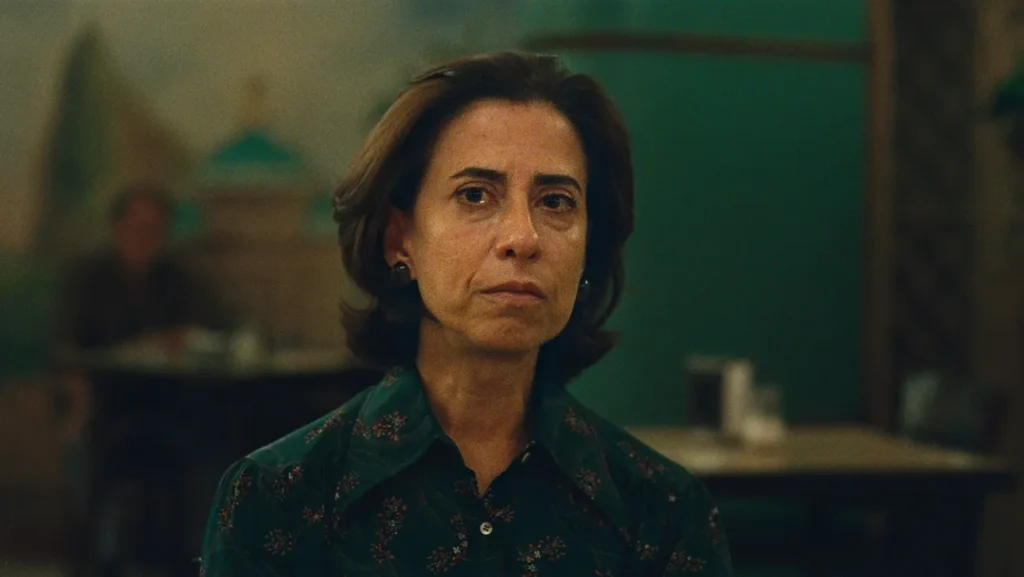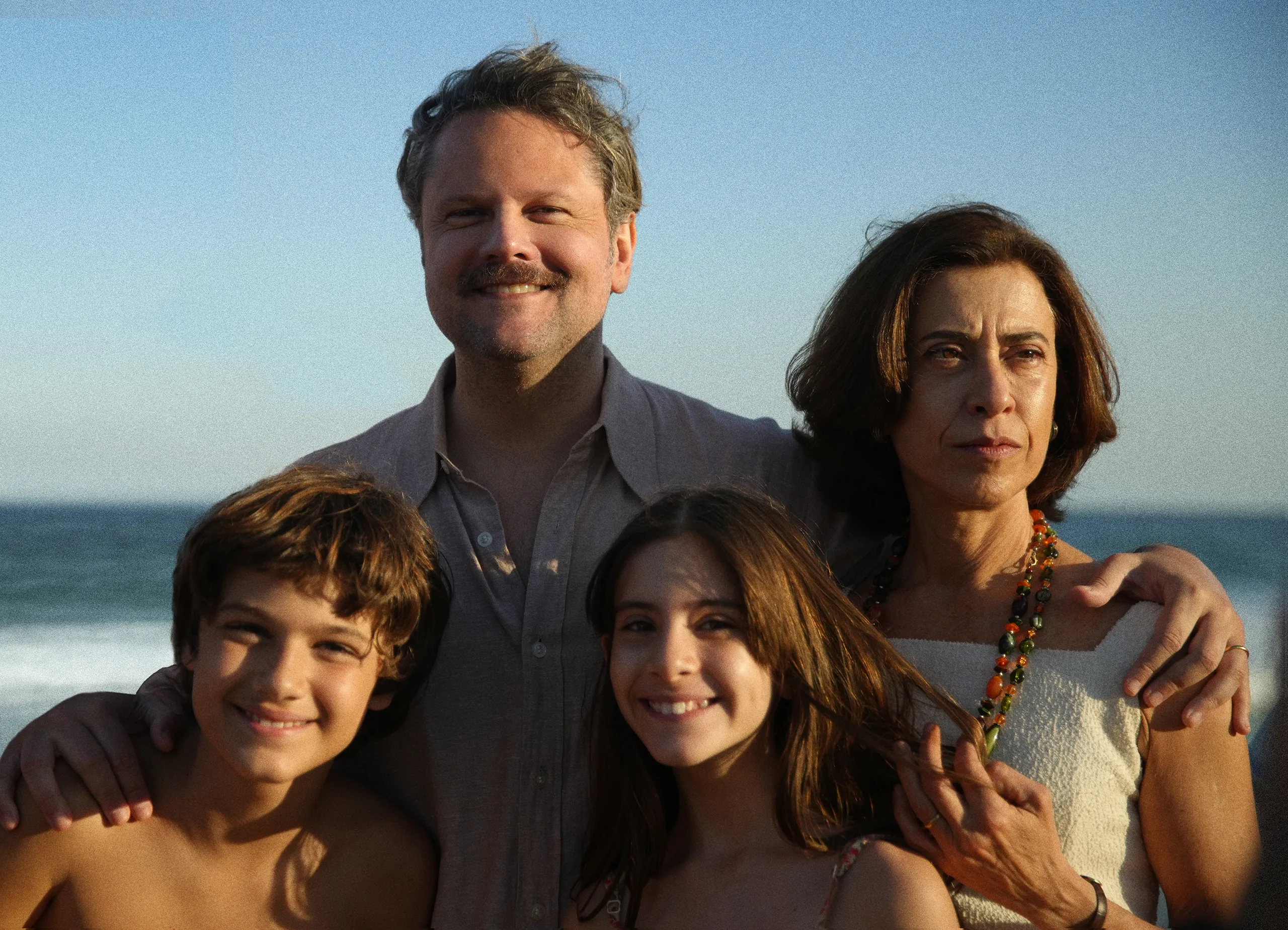The opening sections of Walter Salles’ I’m Still Here, the real-life story of a Brazilian family torn apart by political persecution circa 1971, depict a tight-knit community of parents, children and friends suspended in a fleeting idyll, one to be tragically frozen in photographs, and time, shattered by the Médici dictatorship, which tortured and murdered thousands of political rivals.
Salles, whose picture is based on the political history of one such “disappeared” husband and father whose story would go on to international notoriety, is no stranger to pictures about the birth of political movements, and his transporting 2004 road movie The Motorcycle Diaries chronicled the formative years of young Che Guevara (Gael Garcia Bernal), a portrait of the young man as future revolutionary.
But in I’m Still Here, at once a dire warning (given the current rise of global fascism) and heartbreaking story of fortitude, he turns his focus to the authoritarian horrors of the “Brazilian Miracle” era and one wife’s resilience in pursuit of an elusive truth. Headlined by a bravura performance from Brazilian star Fernanda Torres, whose stoic portrait of a persecuted matriarch turned activist earned her a richly deserved Best Actress Oscar nod, it is perhaps Salles’ most gripping film, reminding one of the great Costa Gavras in its sobering piece of political realism about the long-term personal costs of oppression.
Picture opens in 1971 Rio de Janiero where we meet Rubens Paiva (Selton Mello), a former Brazilian congressman now a civil engineer, having returned from a self-imposed European exile following the the country’s military coup of 1964. He’s the head of a boisterously energetic family, married to wife Eunice (Torres) and with five children. In the picture’s terrific opening shot, Eunice swims in Rio’s tranquil blue waters as a low-flying military helicopter buzzes directly above, the ominous shape of things to come.
The set-up of I’m Still Here lulls with a false sense of security—a sun drenched summer in (expertly shot by Adrian Teijido), where the Paiva children play on the beach, yet untouched by the darkness closing in. Among them are eldest, teenage Veroca (Valentina Herszage), whose defiance puts her at odds with military officials and who relocates to London for safe keeping, and Eliana (Luiza Kosovoski), the second oldest, close to her mother and who will face her own harrowing trials. Salles makes it clear that in a dictatorship even children are ripe for intimidation.
While mild-mannered Rubens quietly works in opposition to the regime as part of a covert resistance collective of journalists, Eunice tends to the marriage (warmly loving) and children, looking away from her husband’s hushed meetings and phone calls while armored trucks and soldiers draw closer to the family’s protective circle (shot on Rio’s heavenly Leblon beach). Salles does well by the tenets of a political thriller, palpable unease and anxiety flooding the air with no one knowing just how serious the threat is.

Suddenly, an intrusion—a knock at the door brings a trio of armed operatives who whisk Rubens away for “questioning,” keeping the family under house arrest. This kidnapping sequence, with matter-of-fact evil in the cold light of day and chilling “just following orders” banality, excruciates. Frightened Eunice tries to be hospitable, offering them meals while fearing for her children.
But soon Eunice herself is removed from the home and forced through a barrage of questions and extended solitary imprisonment. In a powerful scene, she returns home quietly in the middle of the night, showering off the filth of her incarceration before putting on a brave face for the kids. But now what? Weeks and months pass with no word about Rubens.
Cut off from financial support and armed with little more than resilience, she’s left to raise her family, alone, under the shadow of an always watching government (in one big scene she forcefully confronts a surveillance stakeout). Despite the hardships Eunice refuses to let them break her spirit or their family bond (and refuses to speak about Ruben’s disappearance). In a telling moment, the family poses for a newspaper photo, smiling and giggling while the photographer urges a more somber expression. Salles makes a clear statement: life must move forward, not be defined by pain but rather strength in each other. That’s one of many potent scenes in I’m Still Here, and another, set in a busy ice cream parlor, once the locale of family joy, becomes something sadder for Eunice, who has received some upsetting news just prior. Torres, with magnificent melancholy observing other blissful (unified) families, etches remarkable reserve.
In the film’s second half, Salles jumps to 1996 where Eunice, having reinvented herself as lawyer in São Paulo, is now a crusader for indigenous justice. There’s a powerfully pivotal moment regarding a government-issued death certificate, which would be tragic in another film, treated here as a quiet triumph. Torres’ dexterity in taking an event so inherently sad and making us believe it triumphant is amongst the best acting of the year. In a press conference, when queried about the value in digging up the past, screenwriters Murilo Hauser and Heitor Lorega give Torres an eloquent expression of the value of accountability regardless of the passage of time.
The picture isn’t quite perfect, and a sentimental final sequence feels somewhat unnecessary. Save for the opportunity to bring treasured Brazilian grand dame star Fernanda Montenegro (Oscar-nominated for Salles’ 1998 Central Station andFernanda Torres’ 95-year-old mother) back to the screen to play the 2014 version of an Alzheimer’s afflicted Eunice, such closure somehow feels slightly forced. No doubt Brazilian audiences, who have made I’m Still Here a major box office hit, will disagree, given their cultural history with the Paivas and the acting legend.
As as story about the ravages of oppression, Salles trains his focus on personal stoicism and the human capacity for regeneration in the face of loss; I’m Still Here isn’t a movie explicitly about politics or terrors of a regime, or how it was toppled or brought to eventual justice, but rather an examination of people who failed to be crushed despite being thrust into a life-altering tragedy with no closure.
Torres, who would be a fine Oscar winner, eschews every opportunity to “go big” here, her performance a model of economy and tightly controlled pain pushed to the core; she’s never acting, per se, but her face, which miraculously etches every emotion—love, fear, disillusionment, self-reliance and renewal—seems an instrument of such expressive minutiae that even the smallest reaction conveys volumes of drama. In this sense, Torres is as much the author of the film as Salles, Hauser and Lorena, who based the picture on Marcelo Rubens Paiva’s 2015 memoir of the same title. Her performance is a tribute to the resilience of those forced, through loss, to reconstruction, forever holding the past within.
3 1/2 stars



